When eggs are done right, they can enhance different dishes. The perfect hard-boiled egg has a smooth, creamy yolk without the green edges. Hard-boiled eggs aren't just for breakfast – they're awesome in salads, deviled eggs, pickled eggs, and even snacks.

Want to save this recipe?
Enter your email & I'll send it to your inbox. Plus, get great new recipes from me every week!
This page may contain affiliate links; please see my disclosure for policy details. I earn commissions if you shop through the links on this page.
Getting the hang of boiling eggs is a simple kitchen skill that takes just a few minutes. You can make perfectly cooked hard-boiled eggs that peel easily and have bright yellow yolks with this easy method.
Jump to:
There is always a discussion on whether to use new or old eggs when making hard-boiled eggs. Or should you start them in cold water or boiling water? Honestly, the age of the eggs has never made a difference; make sure they are fresh.
I have also used cold and hot water, and both work. However, I prefer starting the eggs in boiling water for one reason: I feel the eggs don't crack in the hot water method.
Guide To Boiling Eggs
Many stages of a boiled egg start with a runny yolk and tender albumen, also known as the egg white. This gradually evolves into a semi-solid consistency before ending in a hard-boiled state with a firm yolk and albumen, especially when using farm-fresh eggs.
Cook time matters when boiling eggs because it determines how they turn out — whether you like them soft, medium or hard. Get it right, and you've got perfect hard boiled egg eggs that work great in all sorts of dishes.
- 6 minutes: A yolk in a liquid state accompanied by a tender egg white is considered a soft-boiled egg and is ideally suited for those fancy egg cups.
- 8 minutes: The yolk becomes medium-textured, slightly softer yolk that maintains its firmness.
- 10 minutes: Although resembling a hard-boiled egg, a hint of softness remains.
- 12 minutes: A thoroughly hard-boiled egg with a just solid yolk.
- 14 minutes: Classic hard-boiled style with a light yolk and a solid but not rubbery white.
Steps For Making Hard-Boiled Eggs
This process is easy, allowing you to boil any amount of eggs you like. You will need a pan large enough to fully cover the eggs in water for even cooking. I am using large eggs, but if using medium eggs and extra-large eggs, adjust the cooking time.
- Begin by bringing a pot of water to a full rolling boil on the stove.
- Carefully place the raw eggs into the boiling water in a single layer, making sure there is enough water to submerge the eggs.
- Allow the eggs to boil for about 30 seconds. This will help firm up the outer layer of the egg whites.
- Lower the heat to keep the water to a gentle simmer; 180 to 190 F or 82 to 88 C is ideal.
- Let the eggs simmer gently in this low-temperature water until they reach the desired level of doneness, typically around 10 to 12 minutes, depending on your preference.
- Once cooked, remove the hard-cooked eggs from the water and place them in a large bowl of ice water to stop the cooking process and make peeling easier.
- After cooling for a few minutes, gently tap the egg on the counter and roll it around for easy-peel eggs. If the shells are difficult to peel, try holding the egg under cool running water.



Storage
Hard-boiled eggs should be stored in an airtight sealed container in the refrigerator and should remain fresh for about a week. For best results, peel the eggs immediately after cooking before storing them.
“I love eggs in just about any form. Hard-boiled eggs are great for egg salad, snacking or making soy sauce eggs to top a bowl of ramen. Soft-boiled eggs are perfect on toast or in a salad of bitter greens with a tart vinaigrette dressing that adds a rich savoriness that balances the other flavors.”
— Robin Donovan, Eggs All Ways
The green ring in hard-boiled eggs
The greenish-gray ring that sometimes forms around the yolk of hard-boiled eggs is known as an iron sulfide ring, a result of the sulfur in the egg whites reacting with the iron in the yolk. Several factors can contribute to the formation of this ring:
- Overcooking: Boiling eggs for an extended period can cause a reaction between sulfur and iron, resulting in a greenish ring.
- High heat: Cooking eggs at a rolling boil, rather than at a gentle simmer, can cause a green ring.
- Older eggs: Older eggs are prone to developing a green ring, even when boiled within the suggested time frame, because of the increased alkalinity of the egg white, hastening the chemical reaction. If using older eggs, check for any signs of spoilage to ensure the eggs are not rotten before cooking. Remember, if you have older eggs you won’t be using immediately, try freezing eggs to use for later.
The green ring on eggs is harmless and does not affect the taste. To minimize or prevent the green ring, try these tips:
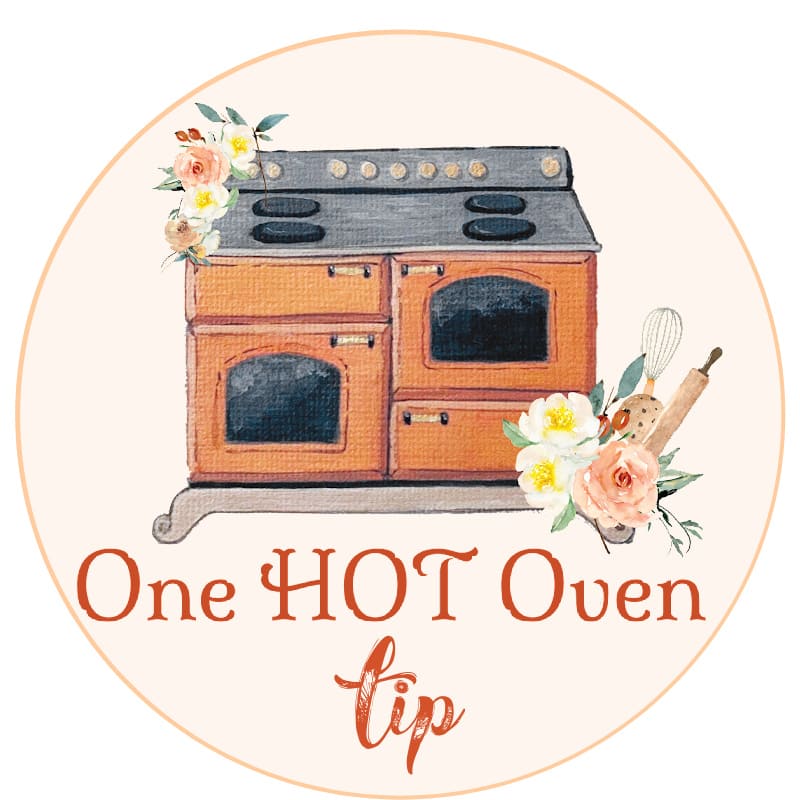
- Don't overcook your eggs. Instead of a rolling boil, keep the water at a gentle simmer.
- Once boiled, cool the eggs in an ice bath to stop the cooking process.
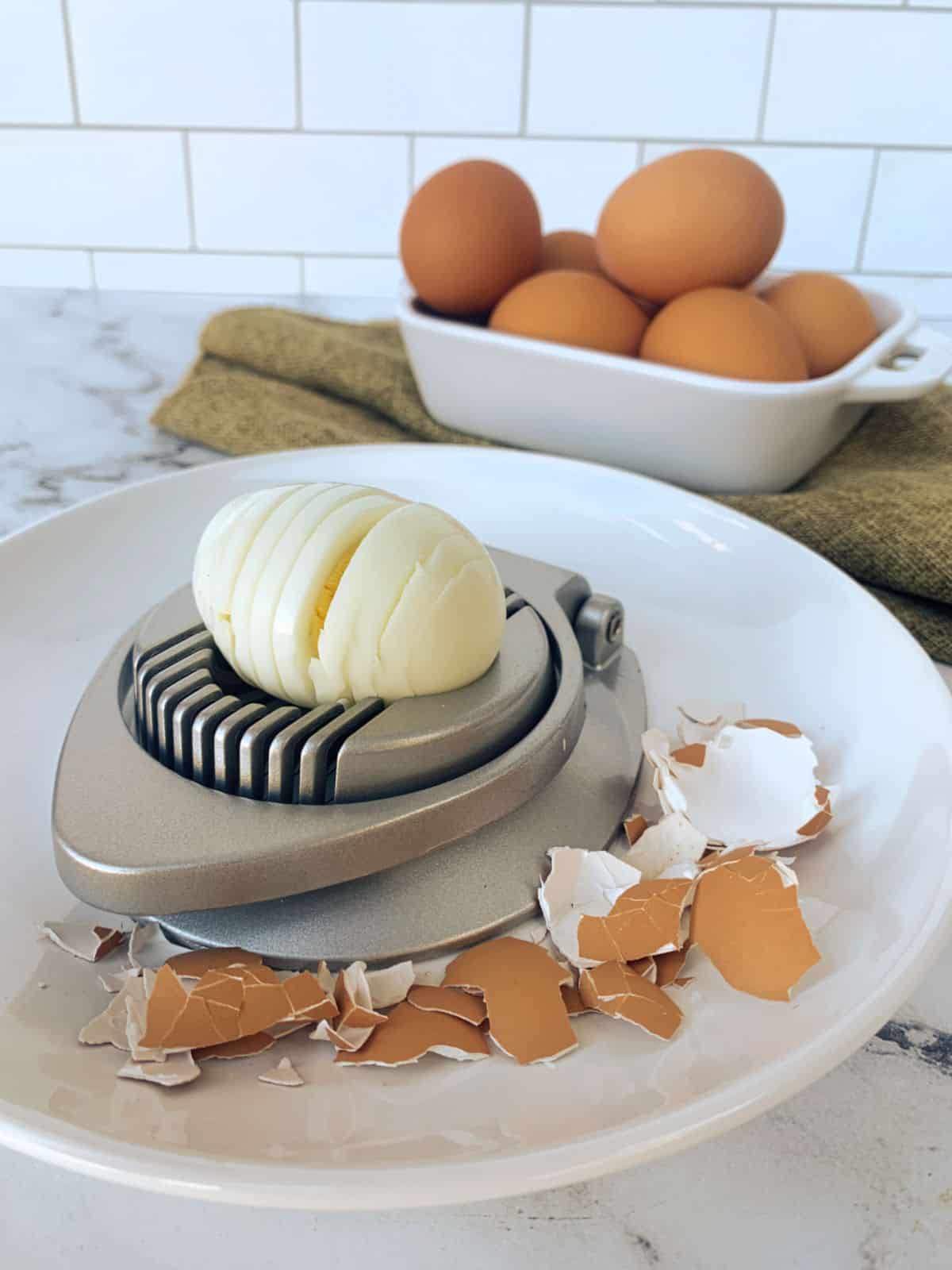
Serving suggestions
Boiling eggs opens up a world of possibilities, making them super versatile and easy to use in various dishes. Here are different ways to use your boiled eggs for your favorite egg recipe:
- Classic deviled eggs: Mash the yolks with mayo and seasonings, then fill the egg whites for a tasty appetizer.
- Egg salad sandwiches: Chop boiled eggs and mix with mayo, mustard, celery and seasonings for a creamy sandwich filling or salad topping.
- Charcuterie platter: Serve boiled eggs alongside cured meats, cheeses, olives and crackers for a Mediterranean-inspired meat and cheese platter.
- Cobb salad: Add sliced boiled eggs with bacon, avocado, tomato and blue cheese over a bed of greens. You can also add chopped boiled eggs to a wedge salad.
- Snacks: Sprinkle salt, pepper or your favorite seasoning over halved boiled eggs for a quick, protein-packed snack.
- Pickled eggs: Learn the art of pickling, and for a tangy twist, immerse boiled eggs in a vinegar solution with spices for a few days before serving.
- Make a large batch of eggs and use them to color Easter Eggs.
“I like medium-boiled eggs best for eating plain, especially warm ones. I find firmer hard-boiled eggs work best for recipes. Just an extra minute or two makes a difference in the texture of the yolk.”
— Lisa Wells, Coastal Wandering
Boiling eggs might sound simple, but nailing that perfect yolk consistency takes a bit of know-how. Remember, timing and technique are your best buddies in the kitchen. So, whether it's for breakfast, salads or snacks, a well-boiled egg is always a win.
More To Make And Eat
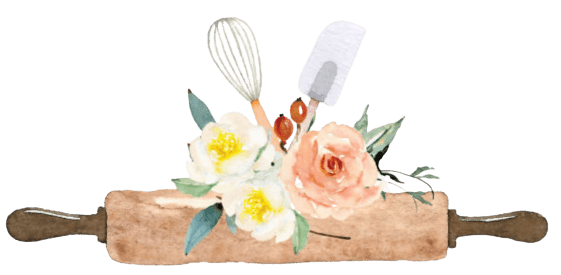
Subscribe here for more great recipes, and follow One Hot Oven for more tasty sweet and savory recipes! Pinterest | Instagram | Facebook
Recipe

How To Hard Boil Eggs
As an Amazon Associate I earn from qualifying purchases.
Equipment
Ingredients
- 6 large eggs
- water
- ice cubes
Instructions
Making Hard-Boiled Eggs
- Bring a pot of water to a boil. Once the water is rapidly boiling carefully drop in the eggs, making sure the eggs are totally covered with water and they are in a single layer.
- Allow the eggs to boil for about 30 seconds. This will help firm up the outer layer of the egg whites.
- Lower the heat to keep the water gentle; 180 to 190 F or 82 to 88 C is an ideal temperature.
- Let the eggs simmer gently in this low-temperature water until they reach the desired level of doneness, typically around 10 to 12 minutes, depending on your preference.
- Once the eggs are cooked, remove them from the water and place the hard-cooked eggs in a large bowl of ice water to stop the cooking process and make peeling easier.
- After cooling for ten minutes, gently tap the egg on the counter and roll it around for easy-peel eggs. If the shells are difficult to peel, try holding the egg under cool running water.
Storage
- Hard-boiled eggs should be stored in an airtight sealed container in the refrigerator and should remain fresh for about a week. For best results, peel the eggs immediately after cooking before storing them.
Notes
Thank you for stopping by the One Hot Oven blog. Please leave a comment to say hello or tell me what you are baking; I always love hearing from fellow bakers. Do you have any questions or want to chat about the recipe? Please visit my About page for information, and I’ll be happy to help!
Hello there, I'm Jere'
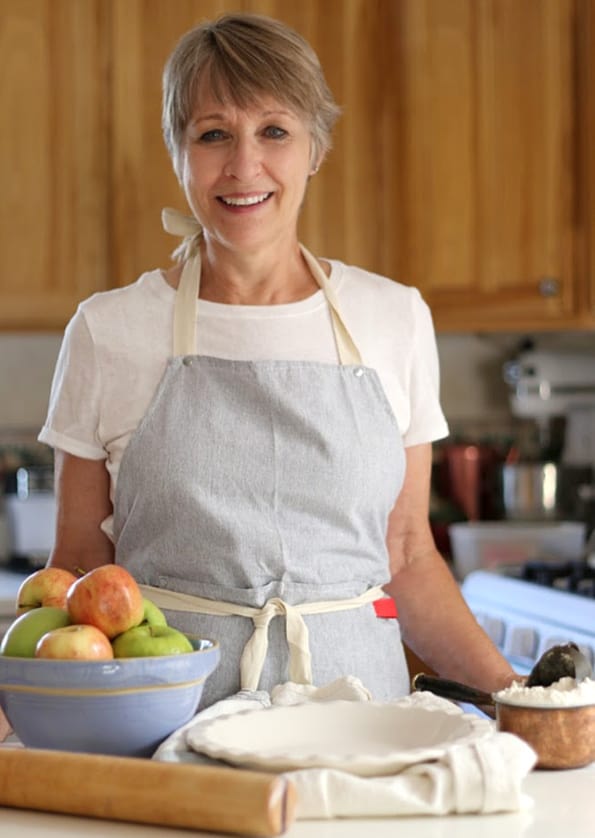
From learning to cook on a farm in Indiana to culinary school in California, my passion for food is never-ending. Turning on my oven to bake something for friends and family is my happy place, and I am glad to be here at One Hot Oven sharing sweet and savory family-friendly recipes for your cooking and baking inspiration.
This article originally appeared on Food Drink Life.





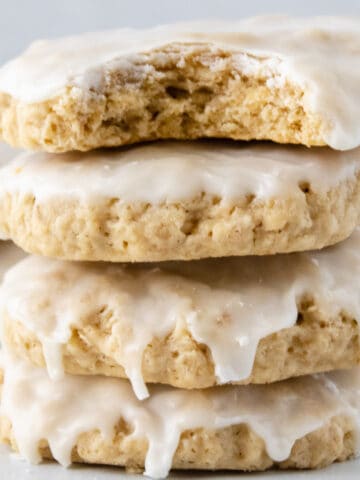
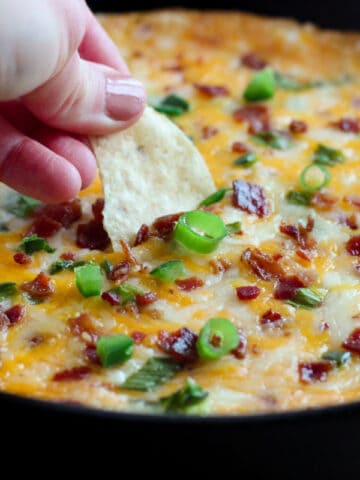

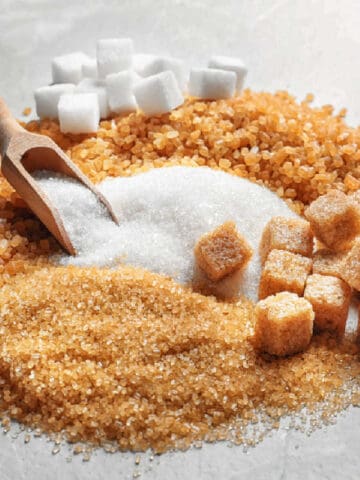
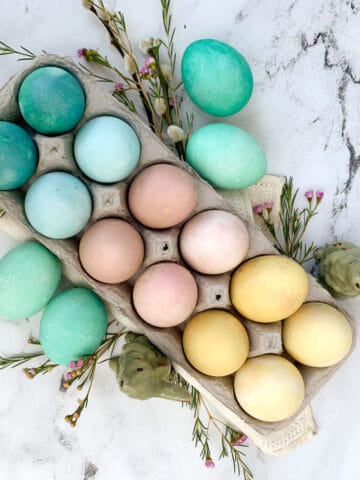
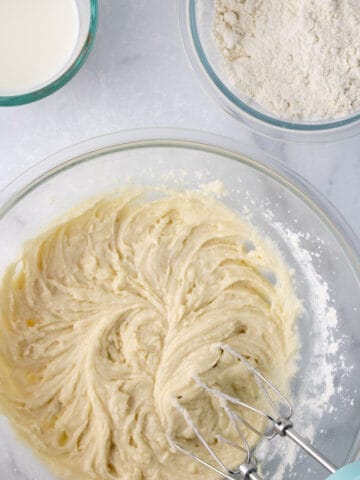
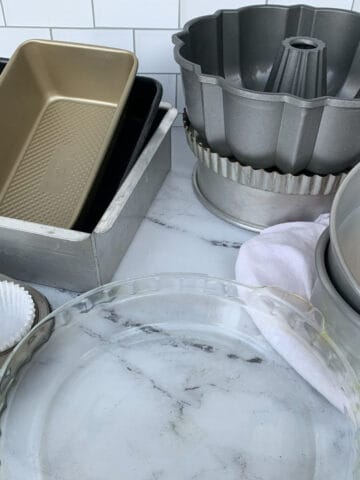

Leave a Reply